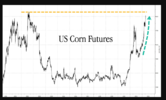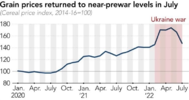- Joined
- 28 May 2006
- Posts
- 9,985
- Reactions
- 2
I read somewhere that Australia only spends $50k on keeping the parasite out while NZ spends 750k on keeping it out of the south island. Sounds stupid when you think how much money this country wastes. This should be given priority and a whole lot of funding.This is not the issue to neglect.
so moxjo, I take it that the parasite is in North Island but not South (?)
Sounds like it's only a matter of time before we get it as well
But I'd sure as hell agree with you (and nc et al ) i.e. we should be spending more than we do, you'd think . Hell they spend $50k on a party in Canberra , don't they?

Here's an old post from a year ago..
http://www.abc.net.au/news/stories/2007/03/30/1885584.htm
Australian honey may be in danger from bee parasite
Posted Fri Mar 30, 2007 12:17pm AEST
The Australian honey industry fears a bee parasite that is spreading rapidly through New Zealand could arrive in Australia at any time.
Australia is the only continent free of the varroa mite.
The Rural Industries Research and Development Corporation has just funded a fact-finding tour of New Zealand, to study the impacts on apiarists.
Tour member and Tasmanian beekeeper Julian Woolfhagen says New Zealand has been unable to contain varroa.
He says it is almost certain the parasite will accidentally arrive in Australia, which will devastate the industry.
"It's not a matter of if, it's a matter of when we're going to get it," he said.
"How long we can delay that is a key, because quite frankly with the Australian honey industry, which is a large-scale one by world standards, its economic base is not at all strong."
THis one also 12 months old or so...
http://www.abc.net.au/rural/telegraph/content/2006/s1888384.htm
Bee Parasite
By Tara Vickers
Tuesday, 03/04/2007
Australian bee keepers have returned from a fact-finding tour to New Zealand to learn about a parasite which has the potential to damage Australia's disease-free honey bee industry.
Australian bee kepers met with New Zealand apiarists to discover how the varroa mite is wreacking havoc with the New Zealand bee and honey industry.
In New Zealand, 70 000 hives have already been lost after the bee arrived a few years earlier. The varroa mite has taken over every continent except Australia where the industry is worth $65 million.
President of the Tasmanian bee keepers Association Julian Woolfhagen attended the tour and says he has no doubt the mite will arrive in Australia.



